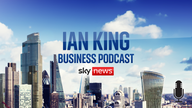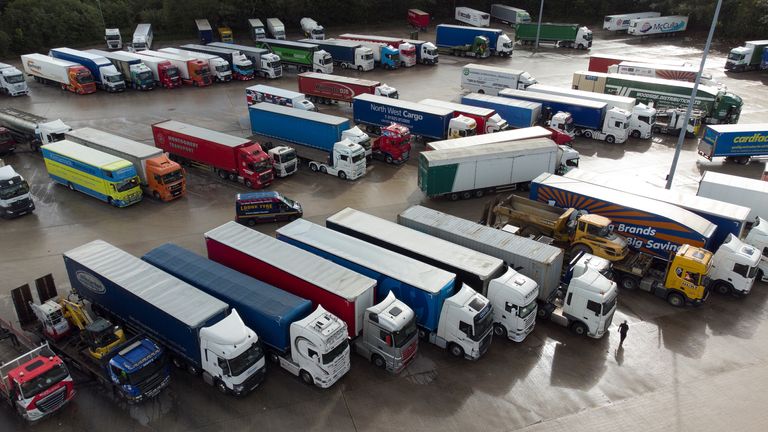‘Christmas became a little more expensive’: Shop price inflation highest since March 2019
Shop prices climbed at their fastest rate for nearly three years last month and the increase looks set to accelerate, according to a monthly report published by the retail industry.
Figures from the British Retail Consortium (BRC) showed prices in December were 0.8% up compared with a year earlier, the highest rate since March 2019.
The rise was led by food prices and blamed on factors including labour shortages across supply chains.
It adds to pressure facing consumers at a time when the official inflation rate – which includes energy bills and fuel prices as well as store goods – is at a 10-year high and set to climb further.
They also face higher monthly mortgage payments as interest rates rise and a coming hike in national insurance.
BRC chief executive Helen Dickinson said: “Consumers may have noticed that their Christmas shop became a little more expensive in December.
“Not only did prices rise, but did so at a faster rate, especially in food.”
Retailers have largely been keeping a lid on shop prices over the last two and a half years.
The shop price index had been showing year on year declines since May 2019 before posting an increase of 0.3% in November and accelerating last month.
It was led by a jump in food price inflation, up from 1.1% in November to 2.4% in December.
Non-food prices, by contrast, recorded a year-on-year fall of 0.2%, compared with a decline of 0.1% the month before.
The increases come at a time when the industry faces shortages of HGV drivers and meat processing workers – blamed on factors linked to Brexit as well as the pandemic – while global supply chain pressures are also taking their toll.
Ms Dickinson said: “Food prices were falling earlier on in 2021, but the acute labour shortages across supply chains, amongst other factors, led to the year ending with a notable increase; for example, fresh food saw the largest rate of inflation in almost a decade.
“The trajectory for consumer prices is very clear: they will continue to rise, and at a faster rate.
“Retailers can no longer absorb all the cost pressures arising from more expensive transportation, labour shortages, and rising commodity and global food prices.”




